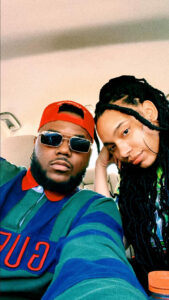
The connection between African American-based movies and their target audience has been prevalent for some time now. African American inclusion in cinema has always brought color and culture to the big screen and allowed our perspectives on life to be understood by those who don’t experience it and relatable to those who do.
Since the first Black romance movie, “Something good-Negro Kiss,” Hollywood has been trying to imitate the unique themes and intricacies of African American love stories. While topics such as racism, gender roles, trauma and cheating may represent a side of Black love, the students and graduates of Florida A&M University seem to think that their current understanding of these ideals may be outdated.
“Love & Basketball” is one of the most popular classic Black romance movies. While riddled with sexist undertones, it describes how one’s commonalities can bring people together and tear them apart. This story follows the lives of two sports fans, Kayla Pratt, played by Sanaa Lathan, and Quincy McCall, played by Omar Epps. They described how Kayla’s character’s ambition and career focused mind-set create a disconnect within her relationship.
While she and her boyfriend are both student-athletes, Quincy seemed to believe that as his girlfriend she should make time to take care of him. Though this love story seemed to have a happy ending, there was nothing to reconcile Quincy’s ideals behind a woman’s role in a relationship. This idea of gender roles is perpetuated in a host of Black films, including “Coming to America” and “Madea’s Big Happy Family.” While this may have been the case in some relationships at the time, it seems to be somewhat of an outdated ideal as far as Florida A&M students are concerned. Pre-nursing student Tyrik Anderson describes how in his relationship he prefers partnership over dependence.
“My relationship doesn’t have any real gender roles, we just do things for each other if it’s necessary or if it’s the right thing to do,” Anderson said.“We’re not gonna be sitting around waiting for somebody else to do something that we could just do ourselves.”
While gender roles don’t quite resonate with students’ infidelity, lying and trauma do. All can create dangerous recipes for heartbreak. Cory Johnson, an alum who majored in psychology, has dealt with such misfortune and had to understand what it meant for her going forward.
“At the end of the day I had to learn that how people treat you is more of a reflection of how they feel about themselves,” Johnson said.
While pain is known to be part of the risk when choosing to love, its depiction in Black romance cinema while accurate, is typically over dramatized. Actor, writer and director Tyler Perry, while known for his ability to relate to his community through his humor and cultural inclusion, has also been accused of using his movies to profit off Black trauma. Films such as “Diary of a Mad Black Woman,” “I Can Do Bad All By Myself” and “Madea’s Family Reunion” paint a picture of struggle before serenity. Perry implies the need to go through trauma before finding love.
While not all love stories start with a tragic back story, information technology major Brooke Demps describes how pain can strengthen a bond.
“When you have come from hitting a rock bottom it makes you appreciate things more,” Demps said.
One of the more unique themes within African American cinema is an understanding of racial discrimination and biases. The black and white Netflix hit “Malcom and Marie,” while soaked with narcissism and unhealthy communication tactics, its two starts are able to come together in harmony when describing the racial biases of movie critics. Movies such as “Queen & Slim” expanded upon this topic using the couple’s shortcomings and fight for racial justice to create the intimacy and attraction they lacked on their first date.
Black love with all its depth, intensity and allure has yet to be properly depicted for public viewing, but that’s not to say that it can’t be.